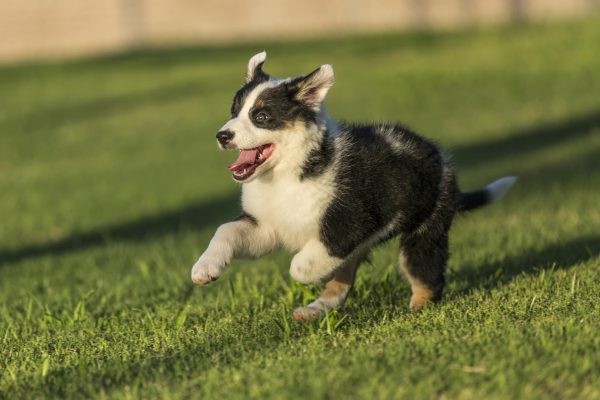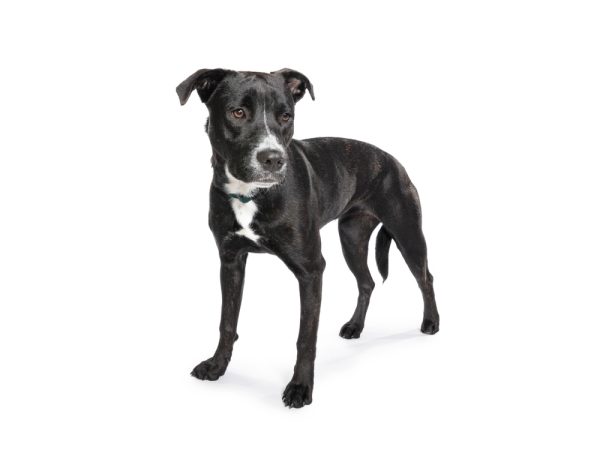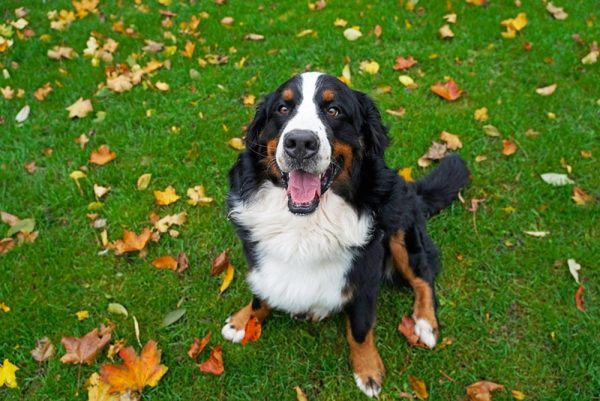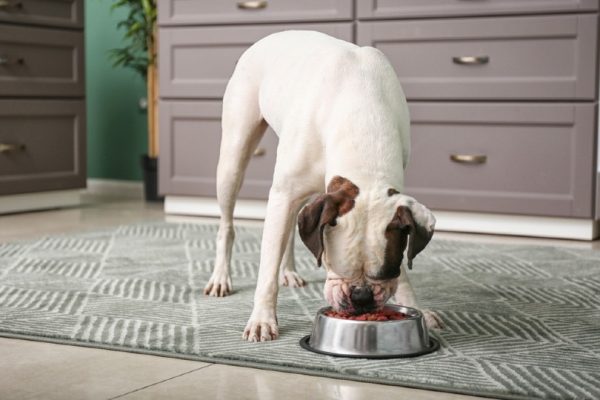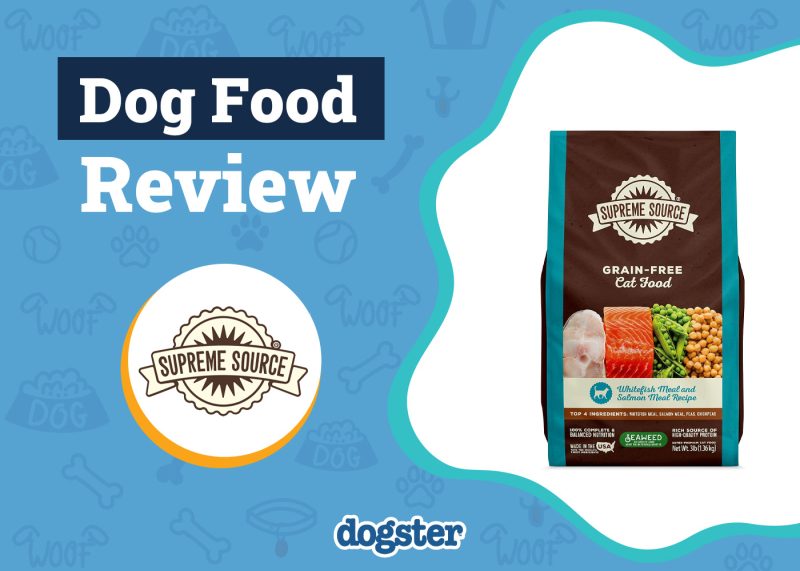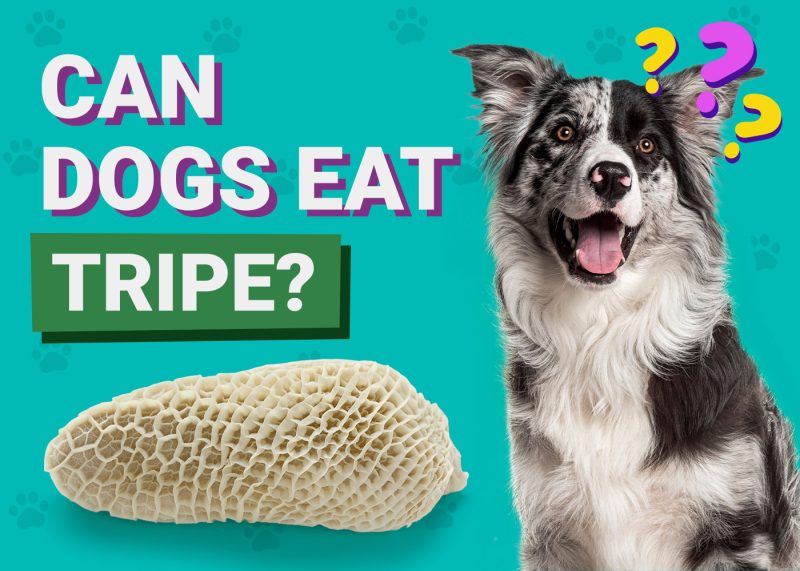In this article
As curious animals, dogs are bound to eat ants at some point in their life. Those little insects that you need to protect your sugary foods from can be found everywhere. Your dog is likely going to eat ants from time to time, but they are harmless. This is, however, if they are not fire ants and your dog is not allergic to these small creatures’ bites.
It is safe for most dogs to eat ants, and you probably won’t even notice unless you witness them doing it yourself. So, if you just watched your dog lick up an ant crawling from the floor or happily lap up a pellet covered in ants, you might be reassured to know that it is quite normal.

Is It Safe for Dogs to Eat Ants?
Most common house or garden ants are harmless and generally considered safe for dogs to eat occasionally. Ants are small enough to go unnoticed and chances are your dog might not even know that they are eating ants. This doesn’t stop some playful dogs from intentionally following an ant’s trail and eating any ants that they can see.
While some sources do say that ants may contain some nutrition for dogs, it is not enough to be considered nutritionally beneficial for dogs. The amount of protein in a few ants doesn’t provide your dog with any noteworthy nutrition.
The only time ants are seen as unsafe for dogs is if they have already come into contact with a toxic repellent, are a dangerous species of ant, or if your dog is allergic to ant bites.
Can Ants Harm Your Dog?
Yes, but the majority of ants you commonly find in your home or yard are harmless to dogs even when ingested. You should still keep your dog away from areas that are infested with ants and treat any ant infestations in the same environment as your dog.
They can, however, become a problem if your dog is bitten by or ingested fire ants. Fire ants can bite your dog’s tongue or a part of their body, leading to swelling and pain. These ants are venomous and can give your dog a nasty sting that usually requires a trip to the vet. Most dogs who have been attacked by fire ants will be prescribed an antihistamine, but more serious signs such as anaphylactic reactions require immediate veterinary hospitalization and treatment.
Since fire ants usually attack in groups, if your dog has been bitten by fire ants or eaten them, they can be dangerous for your dog.
Since certain species of ants can bite and sting your dog, you should be wary of any unidentifiable species of ants coming into contact with your dog. If your dog has an allergic reaction to the bite of an ant, it is important to take them to a veterinarian.
Dogs who are sensitive to ant bites or stings can show worrisome signs that need veterinarian treatment. When dealing with a dog who has been bitten by fire ants or with ant infestations, protect yourself with rubber or silicone gloves and move your dog to a safe area away from the infestation.
If you need to speak with a vet but can't get to one, head over to PangoVet. It's our online service where you can talk to a vet online and get the advice you need for your pet — all at an affordable price!

Signs Your Dog Was Bitten By Ants
If your dog is allergic to ant bites and stings or has been attacked by fire ants, you want to check for these signs.
- Vomiting
- Swelling
- Hives
- Difficulty breathing
- Collapsing
- Lethargy
- Diarrhea
- Pale gums
- Redness in the affected area
Using Ant Repellents Around Dogs
It can be unsafe for dogs to eat ants that contain an insecticide or chemical-based repellents. Ants may walk through these chemicals that are aimed to repel, kill, or poison the queen ant when it is brought back to the nest. You might want to think twice before using harmful chemicals to repel ants in a home with dogs.
Some common ingredients used in ant repellents include hydramethylnon, bifenthrin, boric acid, and thiamethoxam. If your dog has been poisoned by one of these chemicals, it can experience nausea, dizziness, and vomiting. This requires a trip to the veterinary hospital or calling your local pet poison helpline.
Instead of using dangerous ant repellents around dogs, opt for natural or pet-safe repellents that are safe to use in the same environment as your dog.
It is also not a good idea to exterminate ants from your house if the products used are not non-toxic and safe for pets. Be sure to let the exterminator know that you have dogs and inquire about the products they will be using to ensure their safety in your home. Even if your dog is out of the house during the extermination process, the product may still leave a toxic residue or smell that can harm your dog.
Alternatively, there are ant repellents and bait traps that are approved to be safe for dogs. Be sure to follow the correct safety precautions around your pet regardless. Some products can be toxic to pets if ingested in large amounts or by a small dog breed, even if it is labeled as safe for pets.

Why Do Dogs Eat Ants?
Dogs may eat ants for a variety of reasons. It can either be intentional or accidental, although the latter is more likely. Most common garden or house ants are eaten by your dog by accident when they ingest foods or water that have ants.
However, sometimes dogs are curious enough to eat the ants they see roaming the floor. Ants may also crawl onto your dog and be ingested when your dog licks themself. If the ants are making your dog itchy through bites and stings, you may also witness them licking and biting the ants.
Any ants that your curious dog may find crawling around outside can lead them to eat some of the ants, mainly because they are still exploring new things in their environment. Taste is a way for dogs to get a better understanding of their environment, so eating a few ants intentionally is not unheard of in dogs.
Another reason for dogs to eat ants is if your dog sticks their nose into a group of ants. The crawling feeling of the ants on their nose can cause your dog to lick them off, therefore any ants that were on your dog’s nose will have been eaten.
The ants will be attracted to your dog’s food or feeding station where you keep their food and water bowl. Ants may also float in your dog’s water bowl, or hide underneath the bowl in large groups. Maintaining a hygienic environment around your dog’s feeding station can help you detect any ant infestations before they become a problem for your dog.
Is the Formic Acid In Ants Harmful to Dogs?
Nearly all ants have formic acid, a natural chemical that is generally used as a defense mechanism against predators or to leave scent trails. This formic acid is the reason ants don’t taste nice, and it gives them a slightly spicy or sour taste. In small concentrations, formic acid from ants is generally harmless to dogs.
This can be delivered through the bite or sting of an ant, and it is stored in the ant’s venom gland. Most dogs probably don’t eat ants because they taste good, since the formic acid can give them an unpleasant taste.

Final Thoughts
Ants are not usually harmful to dogs, and dogs may accidentally ingest ants throughout their lifetime. In some cases, your dog may intentionally eat ants because they are feeling curious and playful.
If your dog is not allergic to ants and they are not being bitten or eating a dangerous species of ant, then it can be safe.
Featured Image Credit: Andar, Shutterstock





